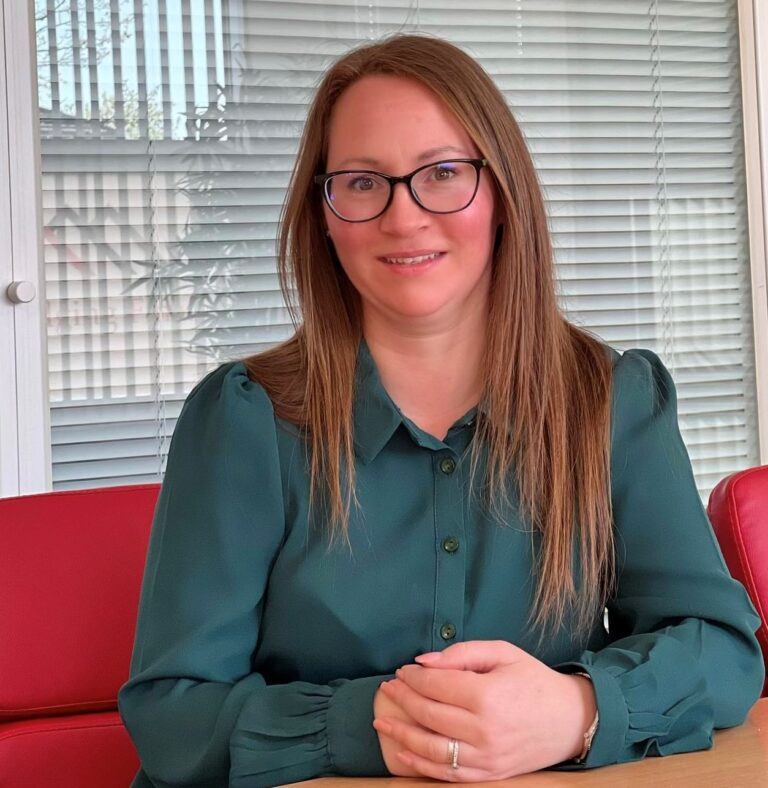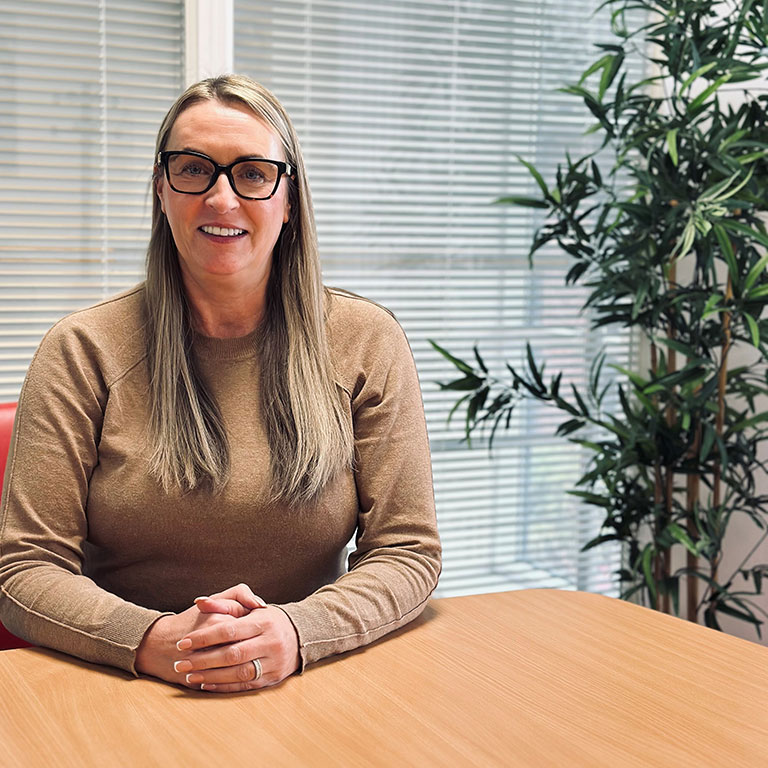First Time Buyer Government Schemes
Speak to an Expert Advisor
or
Why Choose Us
Why Choose Ascot Mortgages
What Our Clients Say About Us
Excellent service regular communication. Reassuring staff that help every step of the way and are extremely patient and supportive. I have used them twice and will continue to do so. Natalia and James thank you for all your work.
From supporting me with putting an offer on a house to explaining mortgage rates, income protection, and so much more, Courtney has been exceptional every step of the way. The ability to WhatsApp her with questions and receive timely updates has made the entire process seamless and stress-free.
I’ve already recommended Courtney and Ascot Mortgages to friends, and I wouldn’t hesitate to use her again in the future. If you’re looking for a knowledgeable, supportive, and dedicated mortgage advisor, I highly recommend her!
Recently I’ve been working a lot with Natalia Barry and Matthew Bradburn, who have both been outstanding. Whenever I have a question, they always have the answer immediately or will find it very quickly.
For anyone in search of a friendly, reliable service, Ascot Mortgages are definitely right for you.
Couldn’t thank them both enough for securing my mortgage on what was such a complex case and will 100% be using them in the future.
didn’t expect getting a mortgage and buying a house would be so easy, Tracey and Richard are extremely professional
made the entire process so easy
Deserve more than 5 stars !!!!!!! Alison should be proud 🙏🏼
If you want a clear, down to earth and friendly service, you should give Alison and her team the chance to help you. You won't be dissapointed.
Highly recommended!!
We highly recommend Natalia for mortgage advise
Not only did Natalia navigate the intricacies of the mortgage market with finesse, but they went above and beyond by suggesting other high-quality services, including solicitors and insurance providers. This comprehensive approach is making the entire home-buying journey seamless and stress-free.
Natalia took the time to understand our unique needs and financial situation, ensuring that the options presented were tailored perfectly.
Communication is prompt and clear throughout, leaving us feeling informed and confident at every stage. Natalia had our best interests at heart, going the extra mile to secure a fantastic mortgage deal.
We cannot recommend Ascot Mortgages and Natalia highly enough. If you're in need of mortgage assistance, look no further. With their expertise and dedication to client satisfaction, you're in the best hands possible. A huge thank you to Natalia for making our home-buying experience a dream come true!
In both cases we were treated with the utmost respect and professionalism.
In the case of the life insurance application, we considered ourselves to be problem customers because of our age and numerous health issues.
Richard Johnson, who managed this application couldn't have been more helpful.
He worked in our best interest and was dedicated to providing an excellent service.
We were kept up to date through all of the stages of the application and when our doctors were very slow in producing medical reports for the insurance company he persisted where others might have given up.
The service we had from Richard was pleasant and professional throughout some difficult stages.
My wife and I have no hesitation in recommending Ascot Mortgages.
Highly recommended for those who want to get the stuff done without any delays!
They were consistently communicative, keeping us informed at every step. Their assistance in consolidating our protection cover was invaluable, simplifying what could have been a complex process.
What set them apart was their personal touch – always polite and ready to pick up the phone for a chat. This level of personal engagement is rare and much appreciated.
In short, Natalia and Jason are not just skilled professionals but also truly dedicated to their clients. We highly recommend their services to anyone in need of mortgage advice.
The mortgage market is slowly starting to get more competitive with new, better value mortgages becoming more available… But lenders are still cautious and the majority of the best rates are only available if the borrower has a large deposit or equity. Sadly that is unlikely to be the case for most first time buyers, who understandably struggle to raise just 5% deposit with the sky high rental market. It can be a frustrating catch 22 situation, and not just for the first time buyer – but the building industry is also suffering due to lack of funding for first time buyers, despite the desperate need for more housing.
Help to buy
This scheme, which was introduced in March 2013, is designed not only for first time buyers, but anybody looking to buy a newly built home, up to the value of £600,000. The scheme asked first time buyers to contribute a deposit of five per cent; the Government adds a loan for twenty per cent of the price; and the mortgage covers the other 75 per cent. For the first five years of the Government loan, you will not be charged any fees or interest, but from the sixth year you will be charged 1.75 per cent of the loan’s value, and the fee will increase annually.
The benefit of this scheme is that the home is in your name, so you can sell the property at any time. The Government’s loan must be paid back by the end of the mortgage period or if you sell your home: whichever comes first. So long as the loan is for at least ten per cent of your home’s value, then you are able to pay back either ten or twenty per cent of the Government’s loan without selling the property.
Shared ownership schemes
These schemes are specifically designed for first time buyers, or people who used to own a property but no longer do. This scheme is only available to those who earn less than £60,000 per year, as a household. The principle of the agreement is that you buy a share of the home (this can range from 25 to 75 per cent), which you need a mortgage for. The rest is paid back through rent to the housing association, where you buy the home from. You can staircase, i.e. buy more shares in the home, at anytime you like, and you can do this through the housing association’s valuation. If you want to sell the property, then you can but you must give the housing association first choice on buying it: this stands for the first 21 years after you buy the home.
Mortgage Repayment Calculator
New Buy
This scheme asks for only a five per cent deposit. The property must be a new build, in that it’s completely new or it is being sold for the first time in its current form (so it might have been an old house, but turned into new flats.) The value of the property must be £500,000 or less, and the scheme cannot be used to buy a second home, or a buy to let property, and must be owned fully by you (i.e. not part of the shared ownership scheme). In addition, the scheme only applies if the builder who you are buying from is taking part in the scheme. You don’t need to be a first time buyer, and there is no income restriction on this scheme: the criteria is that you can repay the mortgage, and you apply for a mortgage through a lender, as you would usually.
Right to Buy
This scheme applies to a council tenant, or a council tenant who was living in the property when it was sold to a private landlord. The tenant must have been living in the property for five years or more. The scheme allows tenants to benefit from the increased security and investment, of home ownership because it gives a discount on the purchase price of their property. The maximum discount is £75,000, or £100,000 if you live in London.
Unlocking New Possibilities: The Power of Remortgaging Your Home
Discover How Remortgaging Can Secure Your Financial Success and Home Upgrades
living in your present property while applying for another mortgage deal with a new lender. Before finding out how to remortgage and get the best offers from experts like Ascot Mortgages, you have to check meeting what parameters of the deal that can help you succeed the most. The range of background factors varies a lot — from the recently changed loan-to-value ratio or your existing agreement coming to an end.
Whether you are trying to get a more beneficial deal or searching for funding to improve your home conditions, remortgaging is one of the most advantageous scenarios to consider.
First Buy
As the name suggests, this scheme is tailored for first-time buyers and it means that the Government, and the developer, will give first-time buyers a twenty percent equity loan to assist with the purchase of a house, up to the value of £280,000. Like the ‘Help to Buy’ scheme, the loan is free for the first five years, and then it increases to 1.75 percent per annum and will increase annually: if you sell the house, you need to pay this loan back first. The buyer in this scheme will need a five percent deposit, and then after the first year of home ownership will be able to staircase, through paying off some of the Government’s loan to own that share of the property. Although you will have a mortgage for less than 100 per cent of the property’s value, you will own the whole property.
People who want to take part in this scheme must be unable to buy a house without assistance, and not earn over £60,000. There must be evidence that the applicant can pay other costs, such as legal fees and stamp duty, and be on a permanent contract of employment. You must have a good credit history, and must not be named on any other property’s mortgage or deeds.
All these first-time buyer government schemes are ideal to help struggling first-time buyers get onto the property ladder but like any financial contract, they must be treated with caution. Using a broker like Ascot Mortgages is one way of getting impartial and sensible advice, which will allow you to benefit from these opportunities and know that they are the right choice for you – please get in touch to arrange a free initial telephone consultation.
Apply for a Mortgage
Get things moving, apply for a remortgage.
Call Now - 01925 711 558
Free unbiased mortgage advice is just a phone call away.
FAQ
A guarantor mortgage is a type of mortgage that involves a third party, usually a family member or close relative, guaranteeing the mortgage repayments on behalf of the borrower. This arrangement is more commonly now known as joint borrower sole proprietor as the guarantor essentially is included as part of the mortgage application but not included on the title deeds to the property.
Shared ownership is a form of home ownership that enables buyers to purchase a share in the property and pay rent on the remaining amount. The buyer usually pays an initial deposit, which is between 5% to 10% of the price of the share being purchased, and then pays a reduced rent on the remaining portion owned by a housing association or other organisation.
A joint mortgage is a type of mortgage that two or more individuals take out together to purchase a property. It allows multiple borrowers to combine their incomes and share the responsibility of repaying the mortgage loan.
The loan-to-value ratio (LTV) is a financial term that represents the ratio between the loan amount and the appraised value or purchase price of an asset, typically a property. It is commonly used by lenders to assess the risk associated with a loan.
Repayment and interest-only mortgages are two different types of mortgage repayment structures. Here’s an explanation of each:
- Repayment Mortgage: A repayment mortgage, also known as a capital and interest mortgage, is a type of mortgage where your monthly payments cover both the interest on the loan and the repayment of the principal amount borrowed. Over the term of the mortgage, typically 25 to 30 years, your monthly payments gradually reduce the outstanding balance. At the end of the term, assuming all payments have been made, the mortgage is fully repaid, and you own the property outright.
- Interest-Only Mortgage: An interest-only mortgage is a type of mortgage where your monthly payments only cover the interest charges on the loan. Unlike a repayment mortgage, you do not make any principal repayments during the term of the mortgage. As a result, the outstanding balance of the loan remains the same throughout the mortgage term. Therefore your monthly payments are less. However, lenders may restrict the maximum loan to value on an interest only basis – generally between 50% to 75%.
With an interest-only mortgage, you are required to have a separate plan or investment vehicle in place to repay the principal amount at the end of the mortgage term for residential mortgages. This could involve savings, investments, or other arrangements that aim to accumulate sufficient funds to pay off the loan. It’s crucial to ensure that the repayment plan is robust and will be able to cover the loan amount. For Buy to Let mortgages lenders will typically accept sale of the security property as the investment vehicle.
Consider a longer-term mortgage if:
- You prefer lower monthly payments to manage your budget.
- Affordability is a priority, allowing you to allocate funds to other financial goals.
- You plan to sell or refinance in the near future.
Opt for a shorter-term mortgage if:
- Minimizing total interest payments is important.
- Building equity quickly is a priority.
- You plan to stay in the property for an extended period.
- Ultimately, the decision should align with your financial circumstances and goals.
Consulting a mortgage advisor can provide personalized guidance.
Yes, it is possible to get a buy-to-let mortgage as a first-time buyer, but it can be more challenging. As a first-time buyer lenders may view you as a higher risk and will also base their lending decision on both rental income and your own personal affordability. However, if you have a good credit score, a stable income, and a solid business plan for your rental property, you may be able to secure a buy-to-let mortgage. It’s important to shop around and compare different lenders to find the best deal for your individual circumstances which is why contacting a mortgage broker for the right advice is a good solution.
Yes, you can get a first-time buyer mortgage if you’re self-employed but most lenders would require a 2 year minimum trading history. However, additional requirements may apply. You’ll need to provide evidence of income, such as business accounts and tax returns. Lenders may request an accountant’s certificate and consider your trading history. A larger deposit may be required. Specialist lenders may cater specifically to self-employed borrowers. It’s best to consult with a mortgage advisor or lenders directly for personalized guidance.
Apply for a first-time buyer mortgage when you have prepared your finances, saved for a deposit, and are ready to commit to homeownership. Consider obtaining a Decision in Principle before house hunting. Consult with a mortgage advisor for personalized guidance.
When budgeting for homeownership, consider the following costs: –
- Deposit: Set aside funds for the down payment on the property.
- Stamp Duty or LBTT: Pay the property tax based on the purchase price.
- Solicitor or Conveyancer Fees: Budget for legal services.
- Valuation and Survey Costs: Account for property valuation and survey expenses.
- Mortgage Fees: Consider arrangement or booking fees associated with the mortgage.
- Home Insurance: Plan for building and contents insurance.
- Moving Costs: Budget for expenses related to moving your belongings.
- Ongoing Costs: Include mortgage repayments, council tax, utilities, maintenance, and service charges.
Ensure you research and estimate these costs to create an accurate budget. Our advisors are always available to assist you in finding the most suitable deal for your unique situation.
Meet Our Team







More On Buying Your First Home
Video
Searching for your first-time home? Ascot Mortgages is your go-to resource! Our experts specialize in assisting first-time buyers and have access to a diverse range of mortgage options. Whether you’re looking for a cozy apartment or a spacious house, we’ll find the perfect financing solution for you. Contact Ascot Mortgages today to discuss your first-time buyer requirements and embark on the exciting journey of homeownership.
Contact Us
Legal
Ascot Mortgages authorised and regulated by the Financial Conduct Authority and can be found on the FCA register (www.fca.org.uk) under reference 776062. The FCA do not regulate some forms of mortgages. The guidance and advice contained in this website is subject to UK regulatory regime and is therefore restricted to consumers based in the UK. There may be a fee for mortgage advice. The precise amount will depend upon your circumstances but we estimate it will be £599 per mortgage account. Ascot Mortgages Ltd give you the option to pay a non-refundable fee of £1299 payable with the application. If this option is taken, Ascot Mortgages Ltd will refund any procuration fee received by the lender.
Ascot Mortgages Limited is registered in England and Wales and have their registered office at 8 Webster Court, Westbrook, Warrington, WA5 8WD. The company’s registration number is 06764971.
We are a credit broker, not a lender. We work with the whole of the lending market. Typically; we will receive commission that will vary depending on the lender, product, or other permissible factors. The nature any commissions model will be confirmed to you before you proceed.
ICO Registration number is Z1842187
YOUR PROPERTY MAY BE REPOSSESSED IF YOU DO NOT KEEP UP REPAYMENTS ON A MORTGAGE OR ANY DEBT SECURED ON ITtypically; we will receive commission
©2025 AscotMortgages.co.uk – All Rights Reserved









